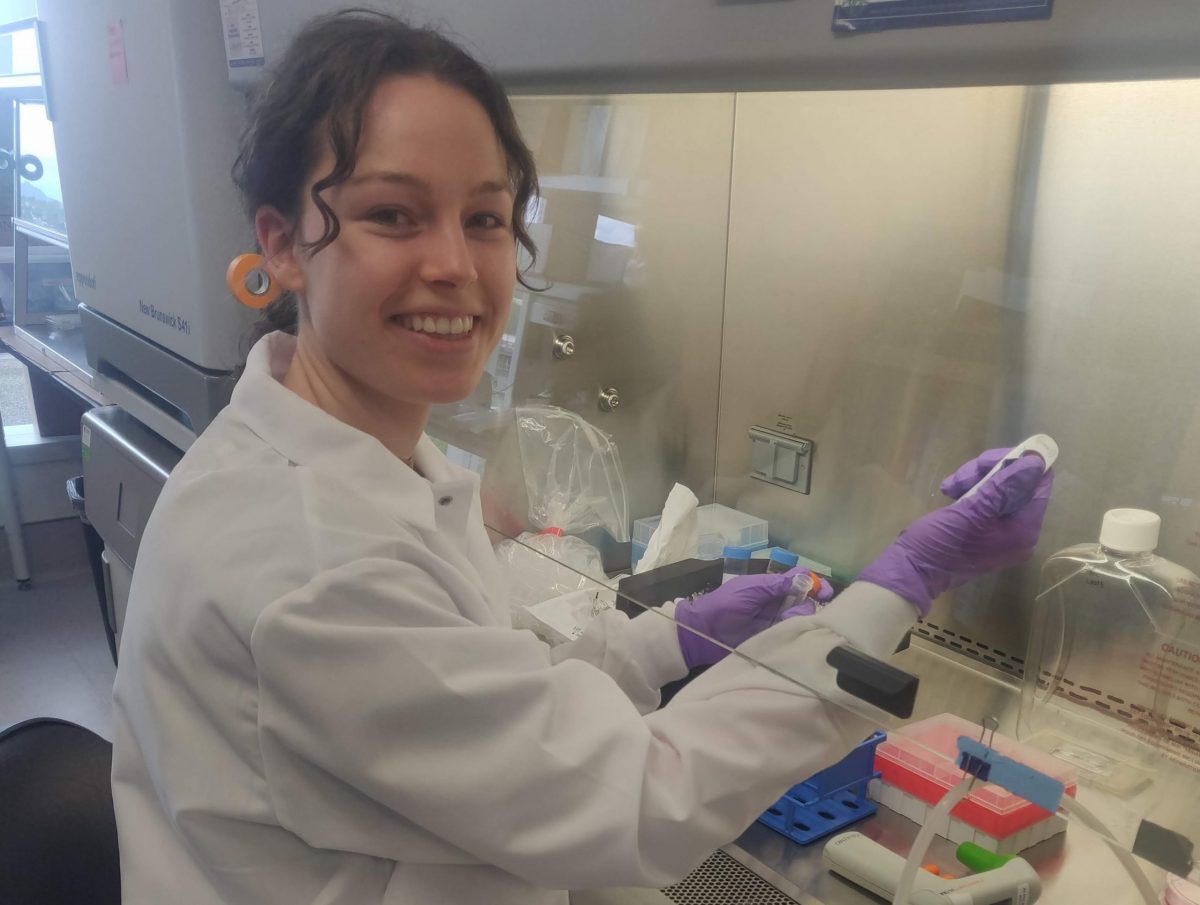“I loved the idea of learning the technical aspects of biochemistry, but applying it to real world situations with forensic science.” – Christine McCulloch
We caught up with Christine McCulloch, currently in her fourth year of the Bachelor of Science Combined Honours in Biochemistry and Forensic Science to hear about her recent co-op experiences and what she loves about the program.
Q: What were you doing before you started studying in this program?
CM: I was a first year in the Faculty of Science at UBC, and unsure of what program I wanted to apply to in second year. Initially I had thought about completing an honours degree in just Biochemistry, but as soon as I saw this program I knew I wanted to apply.
Q: How/when did you know you wanted to study and work in this field?
CM: I’ve always loved science, even since elementary school I knew it was something I wanted to pursue in the future. In high school I started learning more about the inner workings of cells, and the small molecules that interact to maintain life. I was fascinated, and I think that’s really what drew me to Biochemistry.
Before entering UBC I wasn’t aware that the Combined Honours in Biochemistry and Forensic Science program was even an option, it’s a joint BCIT-UBC program. When I saw it at the “Meet Your Major” event, it immediately piqued my interest. I loved the idea of learning the technical aspects of biochemistry, but applying it to real world situations with forensic science.
Q: Tell us about your co-op experience(s)
CM: I knew going into my co-op term that I wanted to learn a range of different skills and experience different work environments. For the first two terms, I was working at the Gut4Health microbiome core at BC Children’s Hospital. The facility works to help predict, prevent, and treat diseases such as inflammatory bowel disease in pediatric patients. My main role was to aid in the development of new and safe microbiome therapies, and to process samples. Gut4Health is affiliated with an academic research lab, so I was able to experience both an academic and a small-scale industry setting.
My experience made me realize that I wanted to keep working to create therapeutics that could potentially improve – or even save – people’s lives. So for my last terms, I’m working at Zymeworks, a biotech company in Vancouver focused on developing antibody-based therapeutics to target tumors. I’m working in the in vitro biology department, and I help test the different antibodies in cell-based assays. I’ve really loved working to help create these therapies that will eventually reach and help real people.
Q: How did your BCIT program prepare you for the co-op term(s)?
CM: In general, the forensic science courses at BCIT have helped me think more critically and understand the importance of maintaining a high standard while working in the lab. One course in particular, FSCT 8155, Forensic Biology: Evidence Recovery, had a lab component that helped me become more comfortable working with real biological specimens, and taught me many valuable lab skills that I still use in my current co-op position. Another class that really helped me was FSCT 8240, Forensic Toxicology, which taught me the basics of the pharmacodynamics and pharmacokinetics of drugs, which are extremely important factors to consider in therapeutic development.
Q: What excites you about careers in your area?
CM: Now that I’ve had experience working in the biotech industry, I’d love to keep working in it in the future. The biotech industry in Vancouver is growing and changing rapidly, so I’m really excited to see what opportunities are out there once I graduate. I’m very passionate about the idea of biological innovation and development of new and improved therapies.
Q: Any advice you’d give to other students?
CM: If you prefer working in smaller class sizes, want a chance to be a part of a tight-knit program, and have an interest in biochemistry and forensic science then this program could be a great option for you. You learn about two separate fields of science, which opens up a lot of job opportunities, but the overlap between the fields helps you excel in both.
I also love that this program is an honours program, which means that in 4th year we get to decide to complete either an advanced biochemical technique lab course or an honours thesis. These options provide an enriched learning environment that a lot of programs don’t offer. I’ve decided to do my thesis in Dr. Pieter Cullis’ lab working with lipid nanoparticles and developing them into safer and more effective therapeutic vehicles.
Feature photo: Christine working in the biosafety cabinet at Zymeworks
Sign up for the twice-yearly Forensics Investigator and keep up with the latest.
